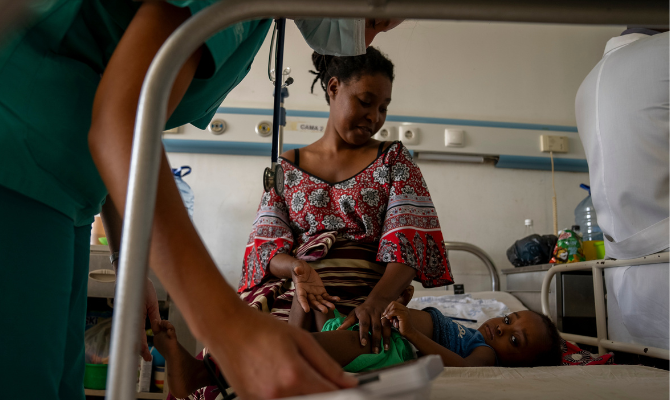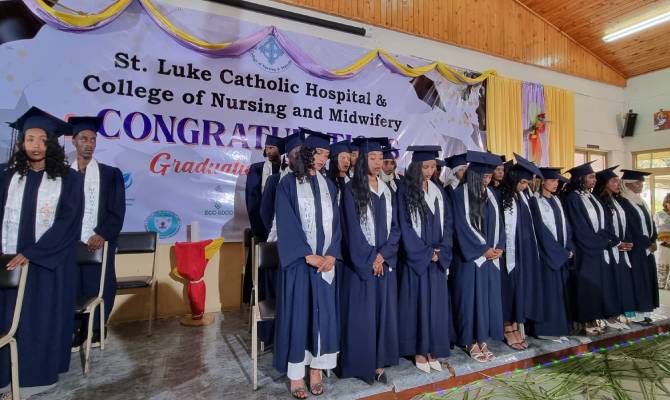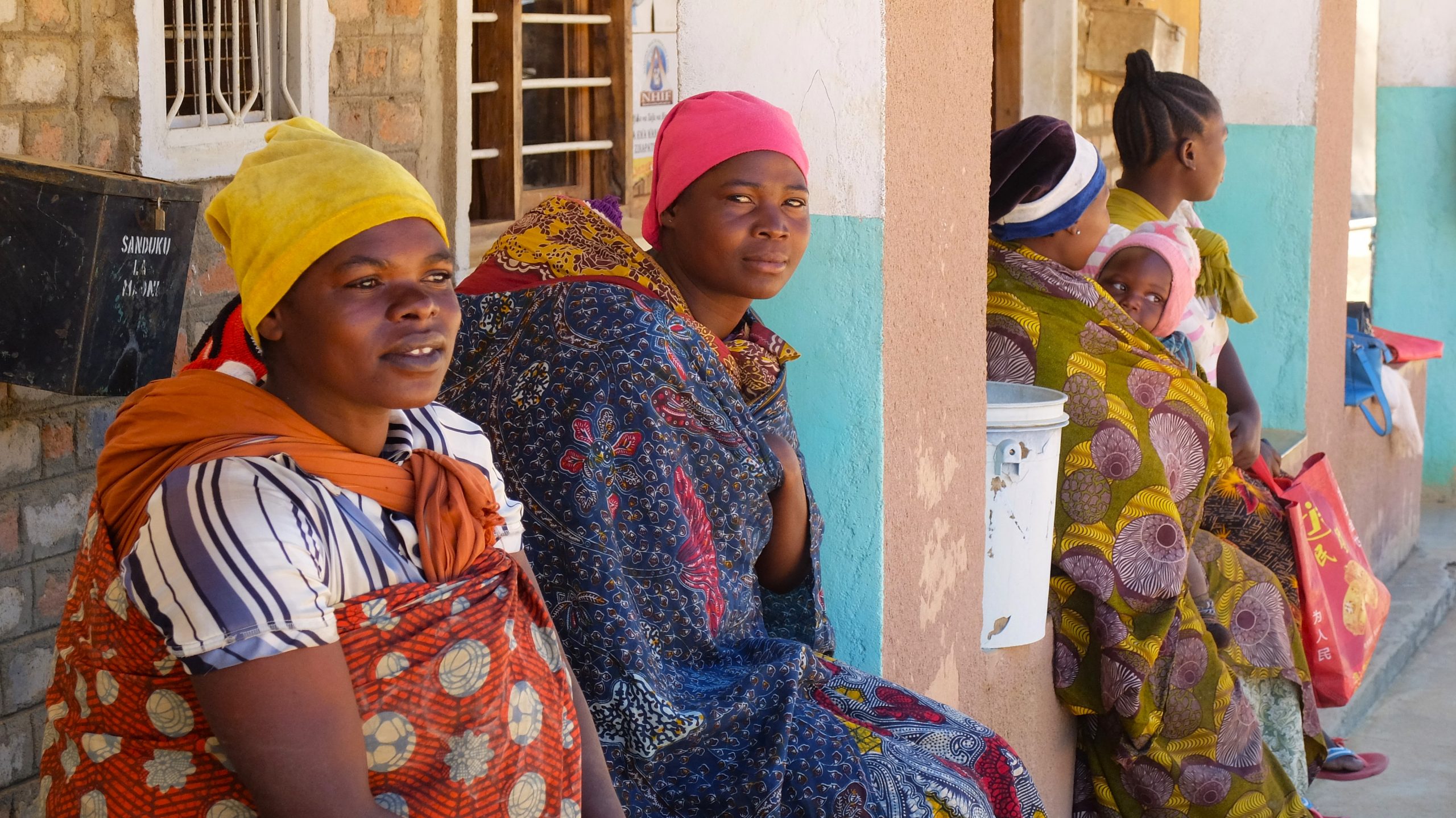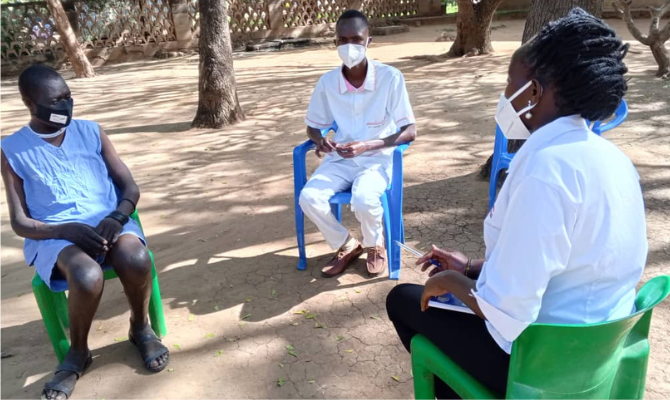“It is a great satisfaction to see that when you hear the ambulance siren approaching, the whole team takes action: those who take care of the most serious cases approach the entrance to see the condition of the incoming patient, those who do triage make room for their ambulance colleague,” tell Irene Avagnina and Marco Frison, a couple of CUAMM paediatricians currently in Beira and active within the project “PROTECT – Safeguarding of paediatric health through an increased access to quality maternal and child health care services, intensive neonatal care and emergency services”. Financed by the Italian Agency for Development Cooperation and implemented by Doctors with Africa CUAMM together with Comunità Sant’Egidio and Auci, it aims to bring significant improvements in reducing maternal and child mortality in the Beira district, in the province of Sofala.
Why this intervention? Because despite the progressive improvement in economic development indicators, Mozambique remains 185th out of 191 countries in the world according to the Human Development Index, with socio-health indicators that are still very critical. In some provinces in particular, such as Sofala, infant and neonatal mortality rates are above the national average, and health services and resources are lacking in quality and access.
This is a particularly urgent problem in the urban area of Beira where births per year are more than 20,000, of which about 6,000 take place in the Hospital Central da Beira (HCB) alone. Every month the berçário, the Neonatology and Intensive Care Department, receives around 150 newborns with critical illnesses, particularly prematurity, asphyxia and sepsis, and the number of patients often exceeds the available beds. Thanks to the intervention, both in the hospital and in the five health centres involved, new human resources have been recruited and trained, including nurses specialised in maternal and child health, who provide assistance in childbirth and monitor mothers and babies, providing crucial information to prevent complications. The community activists then offer practical and emotional support to the families, helping them to recognise and address any health problems early on. In addition, the project contributes to the purchase of essential medicines and medical equipment.
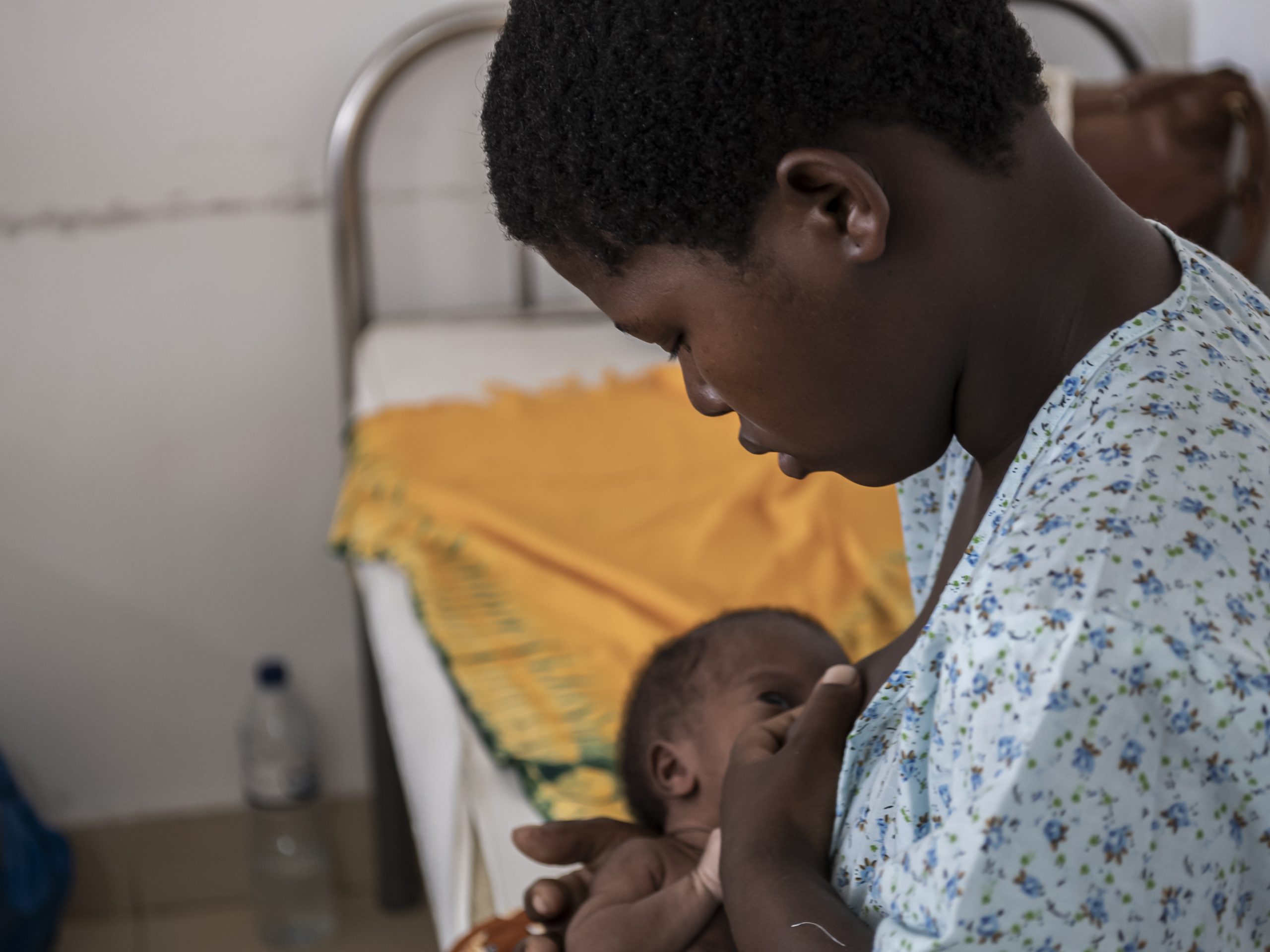
On-the-job training, particularly on the prevention, diagnosis and management of obstetric and neonatal complications, is flanked by ongoing supervision, thanks also to Irene and Marco and Sara Simao, a local paediatrician, who support the staff, especially in the management of crucial departments such as the berçário and the paediatric emergency room of the HCB. Precisely in the emergency room, some 2,000 accesses per month, a triage system was introduced to categorise patients according to severity, an innovative concept for the local reality, but one that has already shown signs of improvement in patient outcomes. It is currently provided to about 80 per cent of patients presenting. In addition to supervision activities, work has been done on drafting and sharing protocols for the management of major illnesses and on service support.
How can we try to make even small steps forward? By creating relationships. “Relationship has been the key word for us in these first months – emphasise Irene and Marco – and it still represents the biggest challenge. Learning to communicate and listen in a reality that is new to us and different from the Italian one. The next challenge is to make the individual professionals protagonists in the various contexts,” they add.
One of the objectives of the project is to create and strengthen relations between healthcare personnel, improving communication and collaboration between the different structures. A case in point: the teamwork to tackle the problem of neonatal asphyxia, demonstrating that an integrated approach can make a difference in the quality of care. Among the most successful initiatives, then, is the promotion of exclusive breastfeeding to have a significant impact on the local community, trying to overcome harmful beliefs related to the practice. The ‘Mother Kangaroo’ method, skin-to-skin contact for the care of premature infants, is promoted to further strengthen neonatal health. In the berçário, in paediatrics as well as in health centres, the work of Kuplumussana activists has also been strengthened, who sensitise mothers on the management of the newborn, the recognition of danger signs, good nutritional practices, basic principles of psychomotor development and family planning.
‘PROTECT’ therefore continues to be a pillar in the fight against maternal and neonatal mortality in the Beira district, thanks to teamwork involving various health professionals and the constant training and supervision of staff.

